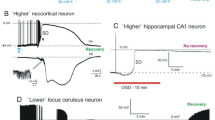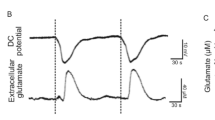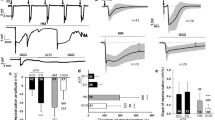Abstract
Spreading depolarizations (SDs) are profound disruptions of cellular homeostasis that slowly propagate through gray matter and present an extraordinary metabolic challenge to brain tissue. Recent work has shown that SDs occur commonly in human patients in the neurointensive care setting and have established a compelling case for their importance in the pathophysiology of acute brain injury. The International Conference on Spreading Depolarizations (iCSD) held in Boca Raton, Florida, in September of 2018 included a discussion session focused on the question of “Which SDs are deleterious to brain tissue?” iCSD is attended by investigators studying various animal species including invertebrates, in vivo and in vitro preparations, diseases of acute brain injury and migraine, computational modeling, and clinical brain injury, among other topics. The discussion included general agreement on many key issues, but also revealed divergent views on some topics that are relevant to the design of clinical interventions targeting SDs. A draft summary of viewpoints offered was then written by a multidisciplinary writing group of iCSD members, based on a transcript of the session. Feedback of all discussants was then formally collated, reviewed and incorporated into the final document. It is hoped that this report will stimulate collection of data that are needed to develop a more nuanced understanding of SD in different pathophysiological states, as the field continues to move toward effective clinical interventions.
Similar content being viewed by others
Acknowledgements
We thank the Neurocritical Care Society and also thank the iCSD meeting sponsors: Moberg ICU Solutions, Raumedic, Hemedex, Integra, Natus, Nihon Kohden, Philips, Ad-Tech, Neurovisio, Perimed, Moor Instruments, PMT Corporation, Glia Media, and UC Gardner Neuroscience Institute. We thank Chanju D Fritch for assistance with documenting and preparing a transcript of the session. Authors’ work on this topic was supported by grants from NIH (NS106901, P20GM109089 (CWS); K23NS105950, U54NS100064 (ER); EB024793, CTSA Pilot Grant (subaward of UL1 TR001414), TR000147 (YA); NS102978 and NS104742 (KCB); K08NS091499 (NH), NS092181 (SCJ); T32 HL007736 (KMR); NS083858 (SAK); The Welcome Trust (MGB); Medical Research Council, UK (SJ); No. GINOP-2.3.2-15-2016-00048 (EF); DFG DR 323/5-1, DFG DR 323/10-1, FP7 no 602150 CENTER-TBI (JPD); Department of Defense: W81XWH-BAA-15-1, W81XWH-18-DMRDP-PTCRA, Moberg ICU Solutions subcontract, Office of the Assistant Secretary of Defense for Health Affairs, through the Defense Medical Research and Development Program under Award No. W81XWH-16-2-0020 (JAH); Discovery Grants from NSERC Canada (MR, RDA) and the Stroke Foundation of Canada (RDA). Claude D. Pepper Older Americans Independence Center (CBM). Opinions, interpretations, conclusions, and recommendations are solely those of the authors and are not necessarily endorsed by the Department of Defense or the National Institutes of Health.
Author information
Authors and Affiliations
Contributions
All authors contributed to the discussion session at the 2018 iCSD meeting that formed the basis of the manuscript. C.W.S. drafted the manuscript based on a transcript from the discussion session. All authors provided feedback and revisions that were incorporated into the final document.
Corresponding author
Ethics declarations
Conflict of interest
Dr. Henninger serves on the advisory board of Omniox, Inc. and serves as consultant to Astrocyte Pharmaceuticals, Inc.
Additional information
Publisher's Note
Springer Nature remains neutral with regard to jurisdictional claims in published maps and institutional affiliations.
Proceedings from the International Conference on Spreading Depolarizations 2018.
Rights and permissions
About this article
Cite this article
Shuttleworth, C.W., Andrew, R., Akbari, Y. et al. Which Spreading Depolarizations Are Deleterious To Brain Tissue?. Neurocrit Care 32, 317–322 (2020). https://doi.org/10.1007/s12028-019-00776-7
Published:
Issue Date:
DOI: https://doi.org/10.1007/s12028-019-00776-7




